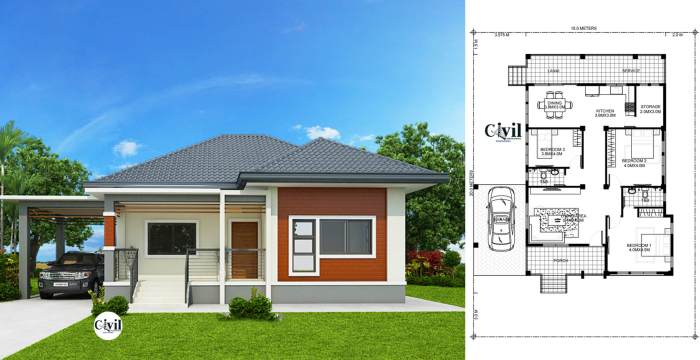Finding the Right 3-Bedroom House: Renting 3 Bedroom House
Renting 3 bedroom house – Securing a suitable 3-bedroom house involves a systematic approach, beginning with identifying available properties and meticulously evaluating listings. This process requires understanding rental agreements, managing finances effectively, and considering neighborhood aspects to ensure a smooth transition into your new home.
Finding Available Properties
Numerous online platforms and resources facilitate the search for rental properties. Effective utilization of these tools, coupled with strategic search queries, significantly enhances the efficiency of your property hunt.
| Platform | Advantages | Disadvantages | Search Features |
|---|---|---|---|
| Zillow | Wide selection, user-friendly interface, detailed property information | Some listings may be outdated or inaccurate, potential for scams | Location, price range, number of bedrooms/bathrooms, pet policies, property type |
| Apartments.com | Extensive database, advanced search filters, direct contact with landlords | May include listings from various sources, leading to inconsistencies | Location, price range, amenities, lease terms, move-in date |
| Trulia | Detailed neighborhood information, crime statistics, school ratings | Can be less user-friendly than other platforms, fewer listings in some areas | Location, price range, property type, school districts, commute times |
| Realtor.com | Focus on both sales and rentals, often includes professional photos and virtual tours | May prioritize sales listings, potentially fewer rental options in some areas | Location, price range, property type, open houses, virtual tours |
A sample search query for a 3-bedroom house might include: “3 bedroom house for rent, [city/zip code], $2000-$3000, pets allowed”. Remember to adjust the filters based on your specific needs and preferences.
Evaluating Rental Listings

Source: civilengdis.com
Thorough evaluation of rental listings is crucial to avoid potential problems. Consider factors such as location, size, amenities, and overall condition to ensure the property aligns with your requirements.
- Location: Proximity to work, schools, and amenities.
- Size: Sufficient space for your needs.
- Amenities: Appliances, parking, yard space, etc.
- Condition: Overall state of repair and cleanliness.
Single-family homes offer more privacy, while townhouses provide a balance between privacy and community, and apartments often come with amenities like pools and gyms. Red flags include unusually low prices, vague descriptions, or a lack of contact information. Always verify the listing’s legitimacy and the landlord’s identity through independent channels.
Understanding Rental Agreements
Lease agreements contain crucial clauses outlining responsibilities and obligations. Careful review before signing is essential to protect your interests.
- Rent Amount: The monthly rental fee.
- Payment Schedule: Due date and acceptable payment methods.
- Lease Duration: The length of the rental agreement.
- Pet Policies: Restrictions or fees related to pets.
- Repairs and Maintenance: Responsibilities of the landlord and tenant.
Compare different lease terms to find the most favorable agreement. Ask questions about late fees, lease renewal options, and notice periods.
Financial Considerations
Renting involves various costs beyond the monthly rent. Careful budgeting and financial planning are vital for responsible tenancy.
- Rent: Monthly rental payment.
- Security Deposit: Typically one to two months’ rent.
- Utilities: Electricity, water, gas, internet, etc.
- Renter’s Insurance: Protects your belongings from damage or theft.
Strategies for budgeting include tracking expenses, creating a monthly budget, and establishing an emergency fund. Payment methods vary, including checks, online payments, and money orders. Good credit is essential for securing a rental property.
Moving and Settling In

Source: thelodgeonwillow.com
Moving into a new rental property involves a series of steps to ensure a smooth transition. A thorough walkthrough before moving in, along with proper documentation, is crucial.
- Walkthrough: Inspect the property for any existing damage.
- Documentation: Note any pre-existing damages in writing.
- Protection of Belongings: Use appropriate packing materials and consider professional movers.
- Post-Move Checklist: Change your address, set up utilities, and familiarize yourself with the neighborhood.
Neighborhood Considerations, Renting 3 bedroom house
Choosing a suitable neighborhood is vital for your overall well-being. Factors such as safety, amenities, and proximity to work or school should be carefully considered.
- Proximity to Work/School: Minimize commute time.
- Safety: Research crime rates and neighborhood watch programs.
- Amenities: Access to shops, restaurants, parks, etc.
- Transportation: Public transport, walkability, and parking availability.
Resources for researching neighborhood information include local police departments, community websites, and online review platforms. Getting involved in the local community can enhance your sense of belonging and provide opportunities for social interaction.
User Queries
What is a security deposit, and how much should I expect to pay?
A security deposit is a sum of money paid upfront to protect the landlord against potential damages to the property. The amount typically ranges from one to two months’ rent.
What is renter’s insurance, and why is it important?
Securing a three-bedroom house for rent can be a significant undertaking, requiring careful consideration of location, budget, and amenities. If you’re focusing your search on the Naples area, you might find a suitable property through a comprehensive online search; for instance, check out this helpful resource for naples houses for rent to begin your search. Remember to factor in commute times and neighborhood characteristics when making your final decision on renting a three-bedroom house.
Renter’s insurance protects your personal belongings against theft, damage, or loss. It also provides liability coverage in case someone is injured on your property. It’s crucial for protecting your investment and avoiding financial hardship.
How do I find out about a landlord’s reputation?
Check online reviews, contact previous tenants (if possible), and research the landlord’s history with local tenant organizations or housing authorities.
What if I need to break my lease early?
Consult your lease agreement for details on early termination clauses. There are often penalties involved, such as paying a fee or finding a suitable replacement tenant.
Can I negotiate the rent or lease terms?
In some cases, you may be able to negotiate the rent or certain lease terms, especially if the rental market is competitive or the property has minor drawbacks. It’s always worth a polite attempt.
